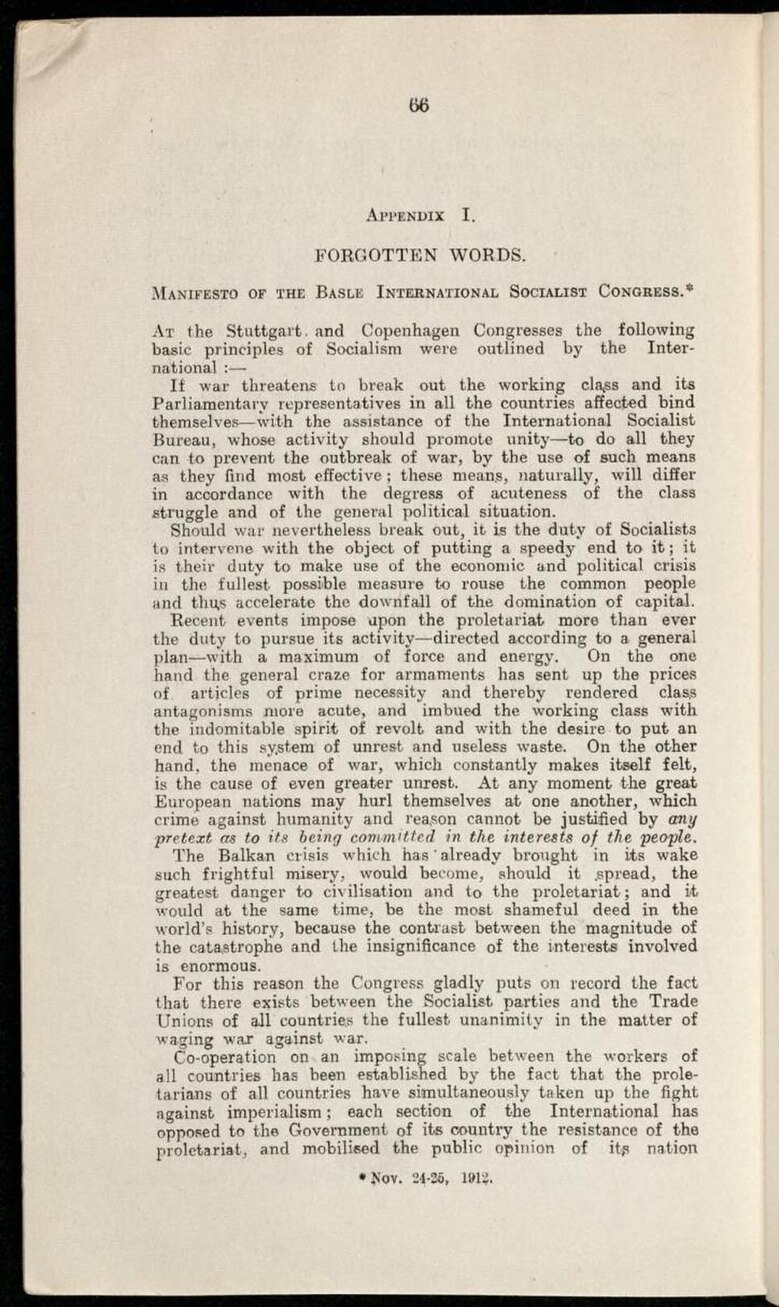66
At the Stuttgart and Copenhagen Congresses the following basic principles of Socialism were outlined by the International:―
If war threatens to break out the working class and its Parliamentary representatives in all the countries affected bind themselves―with the assistance of the International Socialist Bureau, whose activity should promote unity―to do all they can to prevent the outbreak of war, by the use of such means as they find most effective; these means, naturally, will differ in accordance with the degress of acuteness of the class struggle and of the general political situation.
Should war nevertheless break out, it is the duty of Socialists to intervene with the object of putting a speedy end to it; it is their duty to make use of the economic and political crisis in the fullest possible measure to rouse the common people and thus accelerate the downfall of the domination of capital.
Recent events impose upon the proletariat more than ever the duty to pursue its activity―directed according to a general plan―with a maximum of force and energy. On the one hand the general craze for armaments has sent up the prices of articles of prime necessity and thereby rendered class antagonisms more acute, and imbued the working class with the indomitable spirit of revolt and with the desire to put an end to this system of unrest and useless waste. On the other hand, the menace of war, which constantly makes itself felt, is the cause of even greater unrest. At any moment the great European nations may hurl themselves at one another, which crime against humanity and reason cannot be justified by any pretext as to its being committed in the interests of the people.
The Balkan crisis which has already brought in its wake such frightful misery, would become, should it spread the greatest danger to civilisation and to the proletariat; and it would at the same time, be the most shameful deed in the world's history, because the contrast between the magnitude of the catastrophe and the insignificance of the interests involved is enormous.
For this reason the Congress gladly puts on record the fact that there exists between the Socialist parties and the Trade Unions of all countries the fullest unanimity in the matter of waging war against war.
Co-operation on an imposing scale between the workers of all countries has been established by the fact that the proletarians of all countries have simultaneously taken up the fight against imperialism; each section of the International has opposed to the Government of its country the resistance of the proletariat, and mobilised the public opinion of its nation
- ↑ Nov. 24-25, 1912.
